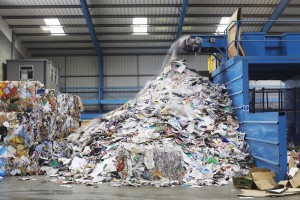The Packaging Waste Regulations In Plain English
Understanding the Packaging Waste Regulations in Simple Terms
At Kite, we pride ourselves on being experts in our field. Sometimes this means designing innovative packaging solutions for our clients, other times it’s about improving customer service to meet tight deadlines — and sometimes it’s about helping businesses navigate the complex world of the Packaging Waste Regulations.
In this post, we’ll break down the basics of these regulations and explain why they matter to any company that handles packaging. We’ll also share some practical tips to help you prepare for your next compliance assessment.
A Brief History
 The Packaging Waste Regulations (officially known as The Producer Responsibility Obligations (Packaging Waste) Regulations 2007 and Amendments) have a long and complex history. They were introduced in response to an EU directive from 1994 and are now enforced by the Environment Agency. These regulations essentially act as a tax on packaging use, with the goal of funding recycling efforts and reducing the environmental impact of packaging waste.
The Packaging Waste Regulations (officially known as The Producer Responsibility Obligations (Packaging Waste) Regulations 2007 and Amendments) have a long and complex history. They were introduced in response to an EU directive from 1994 and are now enforced by the Environment Agency. These regulations essentially act as a tax on packaging use, with the goal of funding recycling efforts and reducing the environmental impact of packaging waste.
- The UK generates millions of tonnes of packaging waste annually, much of which ends up in landfills.
- The regulations were developed by DEFRA (Department for Environment, Food and Rural Affairs).
- They are strictly enforced by the Environment Agency, which can take legal action against non-compliant businesses.
Tip: These rules are legally binding for any business that introduces packaging into the UK market. It's not about the waste collected, but about the packaging you handle each year. Keep reading to find out if your business is affected.
Who Is Eligible?
The main aim of the regulations is to hold UK companies accountable for the recycling of their packaging waste. However, not all businesses are required to comply. Specifically, small businesses with a turnover of less than £2 million are exempt.
If your business:
- Is based in the UK and handles packaging,
- Has a turnover of £2 million or more,
- Handles over 50 tonnes of packaging per year (excluding exports),
Then you must register with the Environment Agency and submit annual reports on the packaging you’ve introduced into the UK.
What Are PRNs?
PRNs, or Packaging Recovery Notes, often cause confusion among businesses, but they’re not as complicated as they seem once you understand the basics.
- PRNs serve as proof that packaging has been recycled.
- One PRN is issued for every tonne of recycled packaging.
- These notes can be sold on the open market by reprocessors, who then reinvest the money into new recycling initiatives.
- PRN prices vary depending on market conditions. For example, in early 2013, plastic PRNs were priced at around £12, but by last month, they had surged to £70. This volatility makes budgeting for compliance challenging.
Your PRN obligation depends on the weight of the packaging you handle, your activity percentage, and the national recycling target (which was approximately 75% in 2013).
Activity percentages reflect the role your business plays in the supply chain. For instance, consider a tin of beans:
- Manufacturer – Produces tin sheeting – 6%
- Convertor – Folds and presses into a tin can – 9%
- Packer/Filler – Fills with beans and adds protective packaging – 37%
- Seller – Supplies the product to the end user – 48%
- End User – Consumer of the packaging – 0% (but 100% if imported)
To calculate your PRN obligation:
Packaging Weight (Tonnes) × Activity Percentage × National Target = PRN Obligation
This includes all packaging used for containment, protection, handling, delivery, and presentation — almost everything except exported or reused packaging.
Compliance Process
Before registering with the Environment Agency, your business must choose a compliance method:
- Allocation Method: If your turnover is between £2m and £5m, you can provide your turnover figure and receive 30 PRNs per £1m of turnover in the predominant material.
- Data Submission Method: If your turnover exceeds £5m, you must report the actual packaging you introduce into the UK and obtain PRNs accordingly.
The overall process involves:
- Applying the regulations to your business,
- Assessing the packaging you handle,
- Setting up a data collection system,
- Gathering and calculating the data,
- Filling out the submission form,
- Registering your data,
- Purchasing PRNs.
This is a time-consuming and mandatory process. Non-compliance can lead to fines or legal action. That’s why many businesses turn to compliance schemes like Kite Environmental Solutions (KES) to manage the process efficiently.
About Kite Environmental Solutions
Kite Environmental Solutions (KES) offers a full-service approach to compliance, helping businesses through every step of the process. Unlike other schemes that simply register companies, KES provides hands-on support and expert guidance from within the Kite Packaging Group, making the experience smoother and less stressful.
For more information, visit the KES website or call 02476420088.
If you have any comments or want to get in touch, follow us on Twitter - @kitepackaging
round coffee table,marble coffee table,glass coffee table,coffee table with storage,modern coffee table,square coffee table
Auxford furniture , https://www.auxfurniture.com